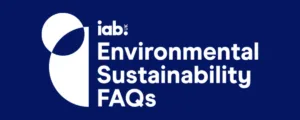Ana Milicevic is the co-founder of Sparrow Advisers, a results-oriented management consultancy focused on adtech, martech, commerce, and adjacent spaces, and NDA’s new regular columnist.
In most advertising conversations you’re never too far away from the famous Wanamaker quote: “Half the money I spend on advertising is wasted; the trouble is I don’t know which half.”
The advertiser trade association ISBA came closer to an answer with the release of their new programmatic supply chain study. Analyzing data from a 15 month period the study, among other conclusions, identified an ‘unknown delta’ of 15% advertising spend that seemingly just goes poof/disappears into thin air/down the murky programmatic pipes.
Few folks in programmatic should be surprised by this finding — while we largely deal with addressable and measurable advertising, we all seem to inherently understand that there’s built-in wastage especially when one buys on the open exchange. Sparrow’s programmatic epochs framework has us now in the 3rd, ‘maturity and stability’ era where we’re past the initial excitement and the wild West/Cambrian explosion of adtech companies looking to quickly gain market share by not-so-above-board techniques.
As an industry we now know that programmatic as a means of transaction is better than our previously largely manual, I/O-based way. Yet we still seemingly haven’t shaken programmatic’s original sin: the belief that advertisers can just simply buy a publisher’s audiences cheaper somewhere else.
This disintermediation strategy lies at the core of every complaint about programmatic supply chains: it’s easy to buy reliable inventory directly from publishers, assuming you’re willing to pay a fair price. While few people expect to be able to drive off in a Ferrari while paying for an entry level Kia, this (or its media equivalent) still seems to be the expectation attached to many programmatic buys today.
Put succinctly and somewhat ironically: the advertising industry has failed to communicate the value of their offerings not just to consumers but to advertisers, too. If we look at other industries, we see similar, if not greater ‘discrepancies’ that are widely understood as clear exchange for the value of access and simplicity of the supply chain.
For example, one could make the argument that home buyers only receive ~57% of the home purchase price put in by buyers yet this rarely results in widespread panic. If technology helps advertisers place buys more efficiently wouldn’t they simply have more money in the budget?
Ultimately what we should be concerned with at industry level, especially if we’re keen to continue to have an open web, is if the lack of transparency and certitude on the programmatic supply chain is really just making the argument that advertisers should spend more/all their budgets on walled gardens.
While this and similar studies seem to point the finger at adtech, I see that finger pointed more at publishers, who will definitely be on the losing side of continued budget migration to walled gardens. Not to be the ‘but what about X’ person, but are we expecting the same level of scrutiny from walled gardens, too? It would only seem fair that if we expect 100% transparency from the open web, the walled-off portion that commands much higher percentages of advertiser spend should meet the same expectation.
Yet in walled garden land there’s no independent rating verification, and little choice but to trust the platforms that the numbers they’re sharing are correct (the big advertising platform version of checking your own homework).
The ISBA report may seem to spell doom & gloom for the open web. Without a similar analysis of what happens in walled gardens, we can’t really tell if this is to be expected and industry standard, or something that truly needs an ‘all hands on deck’ type of industry response.
If you’re a marketer the power is in your own hands: audit your own supply chain first and make sure to ask these same types of questions of your walled garden partners as you (or ISBA) would ask of open web partners.
An earlier version of this piece was originally posted in the Sparrow One weekly newsletter. Subscribe to it here.









